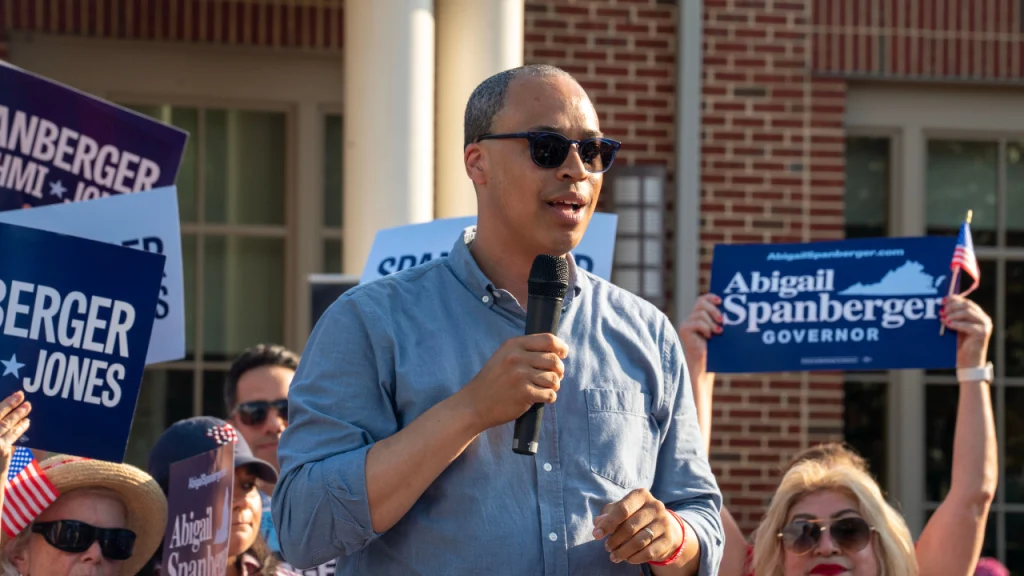Virginia AG Race Rocked by Candidate’s Past Violent Remarks
In a stunning turn of events in Virginia politics, Democratic attorney general candidate Jay Jones finds himself at the center of a growing scandal over violent text messages he allegedly sent in 2022. The controversy has taken on an ironic dimension due to a resurfaced social media post from 2021 in which Jones himself called on a Republican candidate to withdraw from a race over controversial comments. This situation highlights the increasingly tense political climate in Virginia and raises questions about accountability and forgiveness in public service.
The controversy began when explosive reports revealed that Jones had sent text messages in 2022 fantasizing about shooting then-Virginia House Speaker Todd Gilbert in the head and suggesting harm should come to Gilbert’s children, whom he described as “fascist.” These disturbing messages stand in stark contrast to Jones’ public persona and previous statements condemning hateful rhetoric. In 2021, Jones had publicly called on Republican House of Delegates candidate Hahns Copeland to drop out of his race after Copeland made comments about the Virginia Democratic house speaker that were criticized as antisemitic. Jones wrote on social media at the time, “Hate has no place in this Commonwealth, my guy,” a statement that many are now throwing back at him in light of his own violent rhetoric.
The revelation has sparked widespread calls for Jones to withdraw from the attorney general race, with critics pointing out the hypocrisy between his past demand that another candidate step down and his own refusal to do so now. The Republican Attorneys General Association pointedly echoed Jones’ own words back to him on social media: “Jay Jones you should drop out of the race. And delete your account. Hate has no place in this Commonwealth, my guy.” Many others have joined in questioning whether Jones will follow his own previously stated principles. This situation is especially concerning given the current political climate in America, where political violence has moved beyond rhetoric to reality, with recent assassination attempts against former President Trump and the murder of conservative commentator Charlie Kirk.
Despite the growing controversy, many Virginia Democrats are standing by Jones, arguing that his texts were out of character and pointing to his apology as sufficient. Senator Tim Kaine, who has known Jones for 25 years, defended him by saying, “I think those statements were not in character, and he has apologized — I wish other people in public life would sincerely apologize for stuff.” This stance raises questions about whether Democrats are applying a different standard to Jones than they would to political opponents who made similar remarks. Beyond the comments about Gilbert, Jones allegedly also suggested that more police officers should be killed to prevent them from harming others, though he has denied making these particular statements.
The Jones controversy comes at a time of heightened sensitivity around political rhetoric and its potential to inspire violence. In recent years, Americans have witnessed a disturbing increase in political violence and threats against public figures across the political spectrum. The situation puts Virginia voters in the difficult position of weighing Jones’ qualifications and policy positions against these troubling comments and his response to them. It also raises broader questions about forgiveness, redemption, and whether a single set of messages should disqualify someone from public service if they appear genuinely remorseful.
As the Virginia attorney general race continues, this controversy will likely remain a central issue, testing the limits of partisan loyalty and challenging voters to consider what standards of conduct they expect from their elected officials. Jones’ handling of the situation in the coming weeks could determine whether his campaign can survive this scandal or whether the calls for him to step aside will ultimately prevail. The outcome may reflect broader trends in American politics regarding accountability for violent rhetoric and the willingness of voters to forgive candidates who cross certain lines. Regardless of the final result, this episode serves as a stark reminder of how quickly past statements can resurface in the digital age and how the standards candidates apply to their opponents may eventually be applied to themselves.














